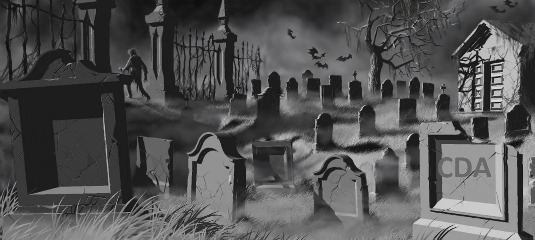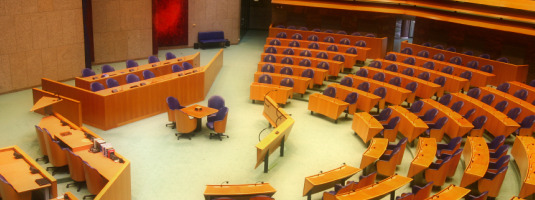Als je na 9 juni Den Haag naderde, kon je van ver de CDA’ers alweer zien cirkelen boven het stadscentrum. Het was al lang duidelijk dat Maxime Verhagen zijn partij weer in een regering onder wilde brengen. Daarbij maakte het hem niet uit of hij de ziel van zijn partij verkocht of niet in ruil voor macht, want die ziel was de partij toch al kwijt.
Rutte heeft een missie
Ter linkerzijde van het politieke spectrum – inclusief ongetwijfeld een minderheid CDA’ers – wordt gebeden voor het mislukken van de vorming van het rechtse minderheidskabinet. IJdele hoop, dat kabinet komt er als het aan Mark Rutte ligt. Deze kans laat hij niet aan zich voorbij gaan.
Rutte-I wordt een deja-vu
Door de stilte die Mark Rutte, Maxime Verhagen en Geert Wilders in acht nemen is het koffiedik in Den Haag uit de kast gehaald. Wat voor kabinet kunnen we verwachten?, is de grote vraag. Komt er een volledig kabinet, met alle drie de partijen, of een minderheidskabinet, met gedoogsteun van de PVV of het CDA? Leuke vragen voor aan de borreltafel, maar vrij irrelevant. Vele malen interessanter is wat er in het regeerakkoord komt te staan. Ik voorspel dat het vrij herkenbaar zal zijn, want Rutte zal grotendeels verder willen gaan waar hervormingskabinet Balkenende-II (CDA/VVD/D66) ophield.
Half the time I think Ron Paul is an idiot. But the other half I think he actually has a point on a number of issues. This is one of them, on Pakistan and Afghanistan. “We say: ‘do it our way’. And if they do, we give them a lot of money. If they don’t, we start bombing them. But we don’t achieve anything!”
“Companies are hoarding cash”, this week’s edition of The Economist writes, because they are reluctant to invest which “may have more to do with regulatory, financial and fiscal uncertainty than weak consumer demand”. In other words: companies are sitting on their money because governments are spending too much. That sounds contradictory. Companies are by and large quite happy with governments spending a lot of money, because that’s good for their business. I therefore think something else is going on. Companies are scraping in hard coin simply because they can no longer finance part of their running costs with bank credit as easily as they were able to until the credit crisis destroyed the credit market as we knew it.
“The administrati0n’s stimulus program has failed.” Thus began an op-ed by economist Allan Meltzer, of Carnegie Mellon University, in the Wall Street Journal of June 30. Yes, the gazillion dollar splurge failed – but not for the reasons Meltzer, or any other critics of Barack Obama’s administration tend to push. The stimulus bill failed because of impossible expectations. People expected the package worth almost a trillion US dollars to kick-start the economy. That it would bring back the good ole’ times in a flash. It didn’t, it was never meant to do that, and until large chunks of the US economy are completely reinvented and reformed, it never will.
En zo blijft er weinig keuze meer over voor Uri Rosenthal, de door de VVD aangewezen informateur. Na het klappen van de informatie voor een VVD/PVV/CDA-kabinet is hij terug bij af. Hij heeft de keuze tussen Apart (VVD/PvdA/D66/Groenlinks, ook wel bekend als PaarsPlus), Grijs (VVD/PvdA/CDA) of – heel exotisch – de ‘ Baskische coalitie’ van rood, wit en groen (PvdA/CDA/SP/Groenlinks). Een fikse puzzel.  Vooralsnog kiest de VVD uiteraard het liefst voor de Grijze coalitie.
Maken coalities ontevreden?
Waarom worden ’tegenpartijen’ als de LPF, de SP en de PVV zo groot? Waar komt die ontevredenheid vandaan? Leidende vragen. Zou het kunnen dat het Nederlandse systeem van coalitieregeringen het antwoord is?
Rutte’s dilemma
Arme Mark Rutte. Kiest hij voor een kabinet met CDA en PVV, dan is de kans op een vleugellam kabinet levensgroot. Kiest hij toch voor PaarsPlus, met PvdA, D66 en Groenlinks, dan is een meerderheid in de senaat binnen handbereik maar kan hij de door hem zo vurig gewenste omschakeling van Nederland naar zijn marktliberale ideaalbeeld nauwelijks realiseren.



